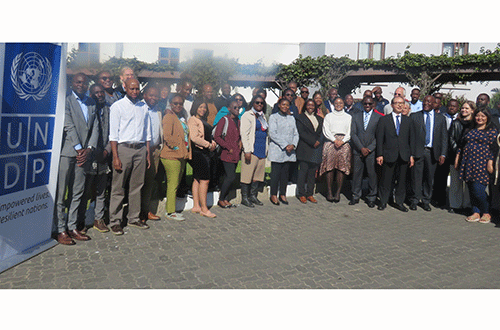Absalom Shigwedha
Namibia has placed more weight on agriculture and forestry as key sectors in which carbon credits can be traded in the country. Agricultural practices such as conservation tillage and soil carbon sequestration can remove carbon from the atmosphere and store it in the soil.
On the other hand, forests sequester carbon from the atmosphere and store it. Recent studies have found that forests take in about 30% of the carbon emissions from burning fossil fuels globally. Other related sectors which Namibia has also lined up as having potential for carbon trading are energy and waste management.
Carbon markets are training systems in which carbon credits are sold and bought and therefore, companies or individuals can use carbon credits to compensate for their greenhouse gas emissions by purchasing carbon credits from entities that remove or reduce greenhouse gas emissions.
The 2015 Paris Agreement on Climate Change (to which Namibia is a party) - Article 6.4 allows parties to voluntarily cooperate to reach more ambitious targets by exchanging carbon credits from potential sectors such as agriculture, forestry, water, and waste management.
Namibia has committed itself to participate in this cooperation and Namibia has -through the United Nations Development Programme (UNDP) in Namibia, received funding from the Government of Japan to establish carbon markets in the country, as a way of addressing climate change and thus achieve goals it has set in its National Determined Contribution (NDC).
This resulted in the development of a Carbon Market Framework for Namibia, which was validated at a five-day workshop held at Walvis Bay recently. The framework is part of the initiatives taken under the project entitled “Promotion of Carbon Markets in Namibia for an Enhanced Implementation of the NDC Towards Neto Zero Emission and Climate Resilience Development in Response to the Climate Emergency”, funded by the Japanese government to the tune of over US$1 000 000.
Tendai Kisanaganeti, one of Namibia’s climate change consultants who were involved in the development of the Carbon Market Framework said the framework is anchored on the fact that in 2023, the country’s Second Update NDC’s identified carbon market as a strategy for mobilising carbon finance to fund both mitigation adaptation measures.
Speaking at the Walvis Bay workshop, the Environmental Commissioner Timoteus Mufeti said the main aim of the framework is to enable Namibia to participate in the carbon market by setting out the processes for developing and implementing carbon market activities in the country.
“The processes for preparing and consultative processes undertaken were to ensure that there is a buy-in-among key stakeholder,” said Mufeti.
The Japanese ambassador to Namibia, Hisoa Nishimaki, said Carbon market finance has been demonstrated to be one of the successful and effective ways to de-risk private sector investment and accelerate low carbon investment in developing countries.


